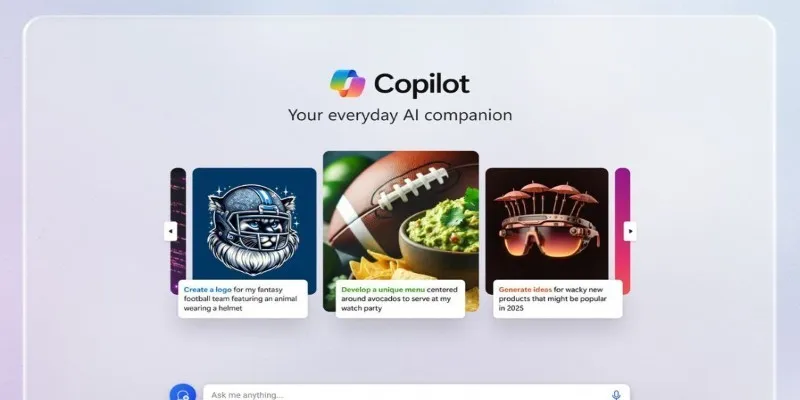Life isn’t black and white, and neither are our decisions. From selecting meals based on cravings to navigating unpredictable traffic, humans naturally deal with uncertainty. Computers, however, traditionally thrive on exactness—strict yes-or-no binary choices. This is precisely where fuzzy logic enters the picture, emulating human intuition to tackle ambiguity in AI decision-making.
Unlike rigid programming, fuzzy logic allows AI to interpret nuanced scenarios with flexibility. Consider an air conditioner programmed for comfort: instead of fixed temperature triggers, fuzzy logic evaluates subtler factors like humidity or slight temperature variations. This article explores how fuzzy logic enhances AI, enabling smarter, more human-like decisions in complex situations.
What Exactly Is Fuzzy Logic?
Fuzzy logic is a type of logic that allows for degrees of truth rather than strictly binary outcomes. Originating from fuzzy set theory, it contrasts sharply with classical logic, which relies entirely on precise yes-or-no, true-or-false responses. Instead, fuzzy logic deals comfortably with uncertainty, allowing a statement to be somewhat true and somewhat false simultaneously—mirroring real-life situations.
The central concept of fuzzy logic arises from the human tendency to describe experiences in vague, relative terms. For example, expressions like “quite warm,” “slightly uncomfortable,” or “somewhat tall” don’t map clearly onto exact numerical values, yet they carry meaningful information. Fuzzy logic leverages these ambiguities, assigning partial degrees of truth to inputs rather than demanding absolute precision.
Practically, a fuzzy logic system begins by converting real-world data—such as temperature, humidity, or pressure—into fuzzy values, a step known as fuzzification. These fuzzy values then pass through sets of intuitive rules constructed around everyday language. For instance, a fuzzy logic air conditioner might assess conditions using rules like “if it’s moderately hot and somewhat humid, then slightly increase cooling.” After evaluating these fuzzy inputs against the rules, the system produces an actionable output through a process called defuzzification.
Because of its flexible nature, fuzzy logic is exceptionally useful in complex scenarios characterized by uncertainty and vagueness. It finds application in fields such as autonomous driving, medical diagnosis, stock market prediction, and even everyday devices designed for human comfort and convenience.
How Fuzzy Logic Enhances AI Decision-Making?
Fuzzy logic doesn’t try to eliminate uncertainty. It embraces it, and that’s what sets it apart in the realm of AI. Many AI systems deal with unpredictable and constantly changing environments. In such cases, crisp decision-making can be too rigid. Fuzzy logic offers the flexibility to make smarter, more adaptable choices.

One key area is control systems—think robotics, industrial automation, or even smart home appliances. In a fuzzy-controlled robot, for example, decisions like “move faster,” “slow down,” or “turn gently” are not based on hard-coded thresholds. They emerge from a blend of sensor inputs interpreted fuzzily, leading to smoother and more human-like movement.
Fuzzy logic also supports better reasoning in AI systems that rely on expert knowledge. By encoding fuzzy rules based on human expertise, systems can conclude even when information is incomplete or contradictory. Medical AI applications are a great example. A patient might show symptoms that are “mild,” “moderate,” or “severe”—terms that can’t be precisely defined. A fuzzy system can handle this ambiguity to assist in diagnosis and treatment decisions.
Moreover, when paired with other AI techniques like neural networks or genetic algorithms, fuzzy logic becomes even more powerful. Neural networks learn from data, but they’re often seen as black boxes. Fuzzy logic adds interpretability by turning neural output into more understandable decision rules. This hybrid approach—called neuro-fuzzy systems—is especially useful when transparency matters.
In AI-driven customer service or recommendation engines, fuzzy logic can interpret subjective user input like “I kind of liked that product” or “not too expensive.” These inputs are too vague for traditional logic but make perfect sense when processed fuzzily, enabling better personalization and user interaction.
Challenges and Limitations of Fuzzy Logic in AI
While fuzzy logic offers a natural way to deal with uncertainty, it’s not without its complications. One of the main challenges lies in rule design. A fuzzy system needs a well-constructed set of rules to function effectively. Creating these rules is often labor-intensive and requires domain-specific knowledge. If the rules are poorly written or incomplete, the system won’t perform well.

Another limitation is scalability. As the number of inputs increases, the number of potential rules grows exponentially. This can lead to bloated systems that are hard to maintain or interpret. Fuzzy logic works beautifully for small or medium-sized problems. However, for massive datasets or highly complex decisions, it may need to be combined with other AI models to stay efficient.
Fuzzy systems can also struggle with learning from data. Unlike machine learning models that adjust based on experience, traditional fuzzy logic doesn’t inherently improve over time. That’s why hybrid models are gaining traction—they combine the adaptability of learning algorithms with the human- like reasoning of fuzzy logic.
There’s also the issue of defuzzification. Once a fuzzy system processes information, it still needs to produce a concrete output. The method used to defuzzify data—like centroid or mean of maxima—can significantly affect the results. Choosing the wrong method can lead to unexpected behavior or suboptimal decisions.
Despite these challenges, the flexibility and human-like reasoning fuzzy logic brings to AI decision-making make it a valuable tool—especially in areas where context, subtlety, and uncertainty dominate.
Conclusion
Fuzzy logic plays a crucial role in enhancing AI decision-making by allowing machines to handle ambiguity and uncertainty, much like humans do. Its ability to process imprecise inputs and provide more nuanced, adaptable decisions makes it invaluable in fields like robotics, healthcare, and smart systems. While challenges like rule design and scalability exist, fuzzy logic’s flexibility in combining with other AI models offers powerful solutions. As AI continues to evolve, fuzzy logic remains an essential tool for creating more intuitive, human-like systems that can navigate the complexities of the real world.
 zfn9
zfn9























